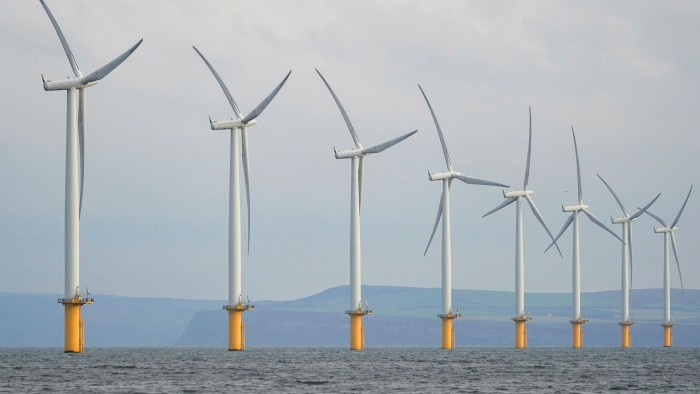Post-pandemic recovery will reshape asset management industry, says study

Simply sign up to the Fund management myFT Digest -- delivered directly to your inbox.
The speed and strength of the economic recovery after the pandemic will reshape the investment industry over the next five years and force asset managers to change their business models to prosper, a study has predicted.
Consultancy PwC is forecasting that overall asset growth will slow for the investment industry over the next five years but infrastructure, private markets and sustainable strategies will be important sources of new business.
Olwyn Alexander, a partner at PwC, said that assets in infrastructure funds could double to just over $2tn by the end of 2025, given the need to refurbish roads, airports and hospitals and to finance renewable energy projects.
In October, the IMF called for advanced economies to increase spending on infrastructure and green technologies, but huge increases in public debt resulting from government support for economies during the pandemic limit options.
The demand for funding to support recovering economies will also spur demand for private credit funds and other alternative investment strategies, said PwC.
“Investments in publicly traded equities and bonds will continue to provide significant sources of capital and lending. Private markets, where there are record levels of dry powder [unallocated capital], could provide the main springboard for recovery,” said Ms Alexander.
Twice weekly newsletter

Energy is the world’s indispensable business and Energy Source is its newsletter. Every Tuesday and Thursday, direct to your inbox, Energy Source brings you essential news, forward-thinking analysis and insider intelligence. Sign up here.
PwC predicts that, if vaccination is widespread and effective and fiscal stimulus measures trigger a rapid economic recovery, assets overseen by investment managers globally could increase 5.6 per cent a year, from $110tn at the end of last year to $147.4tn by the end of 2025.
But sustained high infection rates and delayed economic recovery would slow the increase in global investment assets to $139tn by the middle of this decade.
In its worst-case scenario, with further waves of infection, delayed vaccination, more lockdowns and a stuttering recovery, global investment assets would reach only $130.8tn by the end of 2025.
Ms Alexander said that the market turmoil during 2020 had exposed weaknesses in the business models of asset managers, such as poor cost controls. These would need to be repaired by ending unprofitable business lines, investing in digital capabilities and forging partnerships with fintech companies, she said.
Asset management companies that want to thrive in the post-pandemic era also need to respond to the rapidly growing interest in environmental, social and governance issues.
A PwC survey of European investors found that more than three-quarters of those asked planned to stop buying non-ESG products within two years.
But just 14 per cent of European asset managers intend to stop launching non-ESG funds in the near future. This points to an emerging gap between managers’ products development plans and the changing priorities of investors.
“Investors are increasingly deciding that social return is just as important as financial performance. A few tech fixes here or a nod to investors’ ESG demands there won’t be enough to survive and thrive in an industry where the front-runners are already embracing these changes and seizing the opportunities,” said Ms Alexander.
Comments